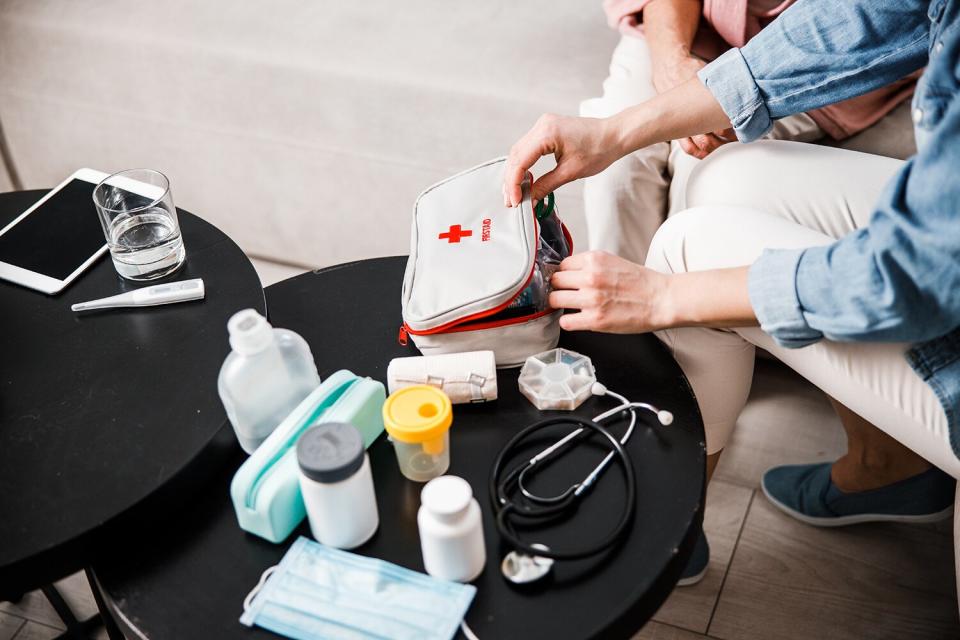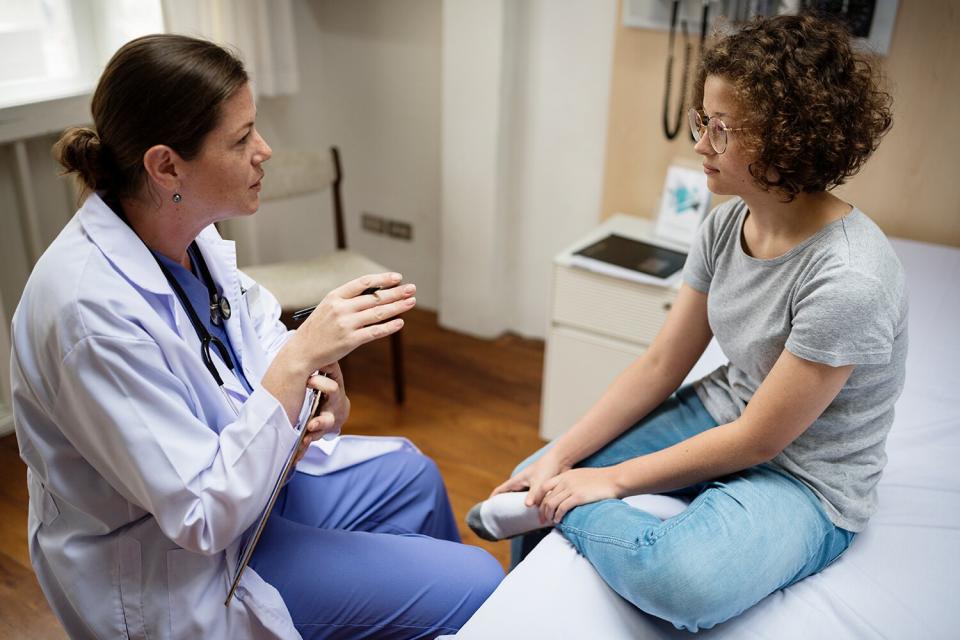7 Health Tips Every College-Bound Teen Needs to Know
Heading off to college is a huge transition. One of the biggest changes? You're in charge of your own health— for probably the first time— and all the responsibility that goes along with that. There's a lot to get used to when it comes to managing your health, so PEOPLE spoke to the woman who literally wrote the book on how to adjust: Jill Grimes, M.D., author of The Ultimate College Student Health Handbook and a family physician based in Austin, Texas. With Dr. Grimes' tips, you'll set yourself up for success on campus— at least when it comes to your physical health.

Getty
Take photos of your most important health documents
Dr. Grimes says this is one of the simplest and most important things you can do. Ask your parents for your insurance card, take a photo on your phone of the front and back, and add the photos to your favorites folder. (Then give the card right back to your parents before it gets lost!) Same goes for your immunization records and a standard health history list, including surgeries, allergies, any major family illnesses.
By having those documents easily accessible, you can save yourself a lot of headaches and phone calls down the road, particularly if you end up making an off-hours visit to campus urgent care.
Get up-to-date on critical shots
About those immunization records: When was your last tetanus shot? "Most 18 or 19 year olds are due for another one," says Dr. Grimes, so get that done before you arrive on campus. She also highly recommends getting the meningitis vaccines (which may even be required in your state; they are in Dr. Grimes' home state of Texas) and the COVID-19 vaccine if you haven't already. The HPV vaccine (which is incredibly effective at preventing HPV and its related cancers) is another good one to get before leaving for college. Once you arrive at school, your campus health clinic should offer flu shots near the beginning of the fall semester, so snag one of those too, says Dr. Grimes.

Getty
Bring a first aid kit
Dr. Grimes says her go-to high school graduation gift is actually a first aid kit— it's such a great thing to have on hand when you're in a new environment and may not always be able to get to a drugstore. A good kit includes:
Photocopies of your health insurance card & immunization records
Thermometer
Pulse oximeter
Good Band-Aids (fingertip, knuckle & blister)
Wound cleanser
Tweezers
Cuticle scissors
Soft wrap bandages
A refillable ice pack ("Dorm freezer space doesn't allow for the kind you leave in the freezer," Dr. Grimes says.)
Bulb syringe
Artificial tears
Extra toothbrushes ("Use and dispose of them after respiratory illnesses," she says.)
Box of disposable masks
Allergy medications
Cough/cold medicines
Oral pain/fever relievers
Topical medication like hydrocortisone cream, aloe, or Icy Hot
Stomach medications like antacids or Imodium
This isn't a full list, but it's a good start!
Pack your essentials
If you're on any prescription medications (think: allergy medicines, medicines for your mental health, birth control) make sure you bring these with you. College life gets busy, so it's a good idea to bring a weekly pill organizer to ensure you're taking any daily medications at the correct time.
And if you take any medications, like those for ADHD, which others might want access to, bring a small lockbox to keep them safe, says Dr. Grimes.
One prescription you may not be thinking about? Your prescription glasses. "All of you who wear contacts and never wear prescription glasses: find your prescription glasses," Grimes says. "Preferably bring a pair that's current. Because if your eye gets scratched or something gets in your eye or you get pink eye—all of which happen all the time—we have to take you out of your contacts for at least three days."
Have your parents or guardians sign a HIPAA release form
"One thing [many] parents don't realize is that if your kid is 18, which most college freshmen are, doctors have to have the 18-year-old's permission to say anything about their child," says Dr. Grimes.
This means that if your parent becomes aware that you are at university health services or the hospital and tries to call to locate you, doctors can't confirm your whereabouts without your permission.
By signing this form, as well as a medical power of attorney form (both of which you can find and execute online), you can help your parents be involved in your medical care, if you like.

Getty
Don't be afraid to use university health services
One of Dr. Grimes' top tips for incoming freshmen is "don't wait until you're in crisis" to see a doctor. Your campus has a health center, and it's there for you to use! "I want to generally encourage [students] to not be afraid to reach out and ask," says Dr. Grimes. "There's no question that is too stupid, just like in the classroom. The same thing goes for your health and health care." This is true for mental and sexual health, too. Dealing with insomnia? Worried you might be pregnant? Go to university health services before the concern gets bigger. The resource is there for you to use, so take advantage!
Be your own best advocate
No one knows your body better than you, so if you are experiencing health concerns and plan to visit the doctor, be prepared. "The best thing is to write down your symptoms, write down a time frame, and be proactive," says Dr. Grimes. This includes being honest when the doctor asks you questions; if you're not 21 yet but have been drinking heavily on the weekends and the doctor asks if you binge drink, don't lie.
And if there's something specific you're worried about— say, persistent stomach pain and your family has a history of stomach cancer— make sure you voice that to the physician. "If you don't feel heard, it's okay to go back and be persistent," says Dr. Grimes. Without a parent or guardian present to manage your health decisions, the best person to advocate for yourself is you.

